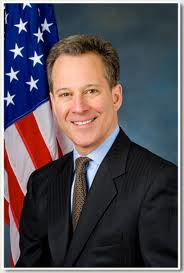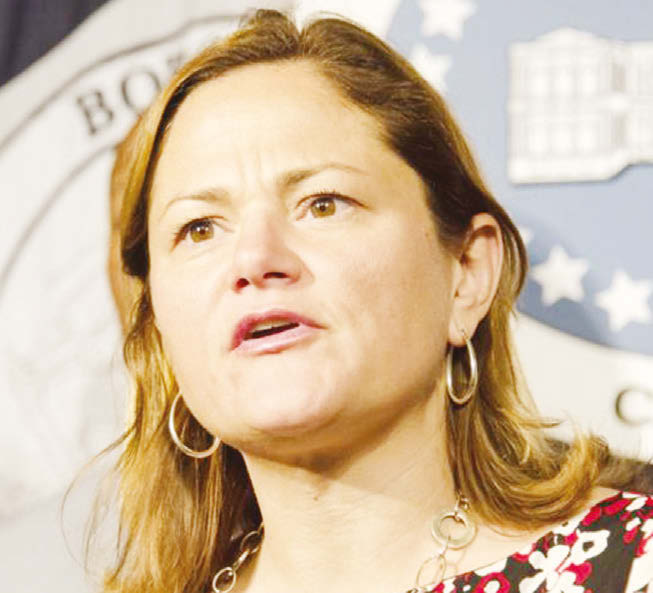
ALBANY, NY (TIP): As part of a wider investigation into energy service companies, Attorney General Eric T. Schneiderman today announced that claim forms have been sent to more than 25,000 current and former New York customers of HIKO Energy, LLC who purchased HIKO energy products between June 1, 2011 to October 1, 2014. An investigation by the Attorney General’s Consumer Protection Bureau found that the energy service company lured consumers with false promises of lower rates, and then fleeced customers with much higher bills; enrolled new customers without their knowledge or consent; and made it difficult for customers to cancel their enrollments in a timely manner. The Attorney General secured the refunds for customers as part of a settlement that also imposes new restrictions on HIKO’s marketing practices to prevent future frauds.
“Thousands of New Yorkers were lured by HIKO’s false promises for huge savings, only to be stuck with more expensive energy bills. I am pleased to return more than $1 million to consumers who lost money to this company,” Attorney General Schneiderman said. “These are difficult economic times, and companies that exploit New Yorkers looking to save their hard-earned money will be held accountable. These kinds of consumer frauds will not be tolerated.”
The Attorney General’s ongoing investigation into energy service companies (or ESCOs) has returned millions to consumers, including, most recently, nearly $2 million to customers of Columbia Utilities Power LLC pursuant to a 2011 settlement.
The Attorney General’s investigation found that HIKO’s marketers falsely promised savings of 10 to 15 percent on consumers’ energy bills. Customers who enrolled were hit with rates that were frequently much higher than those offered by their local utilities. Energy service companies purchase energy on the open market and then sell it to consumers.
Utilities still deliver the energy to consumers, but consumers can choose to purchase their energy directly from the utility or through an ESCO. HIKO used its status as an ESCO to charge its customers much higher prices than they would have paid if they purchased energy from their utilities.
HIKO engaged in telemarketing and door-to-door sales. The investigation found that, in addition to promising lower costs, the company’s marketers enrolled consumers as customers without their knowledge or consent. They used a number of deceptive practices in order to do this, including tricking consumers into providing their account numbers which HIKO then used to transfer their accounts; falsely claiming that they represented consumers’ utilities; and obtaining consent to switch from individuals who were not authorized to provide such consent.
The settlement between the Attorney General’s office and HIKO required that HIKO pay $1.25 million to the Attorney General’s office for use in a restitution program as well as penalties and fees. The claims process will be handled by the Better Business Bureau of Metropolitan New York. The settlement also requires HIKO to take measures to prevent deceptive practices in the future, including adequate training of sales representatives, recording of communications between customers and customer service representatives, recordings of communications between customers and sales representatives that result in a sale, regular monitoring of sales recordings, and appropriate disciplinary procedures for violations of the law.
If you bought electricity or natural gas from HIKO before October 2014 and do not receive a claim form by mail, you may still be eligible for a refund if you were subject to certain deceptive practices. You can submit a claim online at go.bbb.org/ny-hiko, or call 212-358-2857 to have a claim form sent to you that you can submit by mail.
ALL CLAIMS MUST BE RECEIVED BY AUGUST 15, 2015
Consumers can protect themselves from unscrupulous ESCOs by remembering the following tips:
- If you receive an offer for energy services, make sure you understand whether the offer is from your utility or an ESCO.
- You do not have to choose an ESCO to supply your gas or electricity. You may choose to use your utility as your direct supplier.
- Make sure you understand whether an ESCO contract involves an early termination fee and, if so, the fee amount and the length of your contract commitment.
- Before accepting any offer, ask the ESCO to show you how its rates have compared with your utility’s rates during each month in the past year. This can help you judge how competitive the ESCO’s rates may be in the future.
- Remember that you have the right to cancel an ESCO contract with no obligation within three days if you change your mind.
- If you are uncomfortable with how a marketer behaves, end the conversation with a request to look over their offer in writing so you can get back to them when you have made a decision free of any pressure.
- If you receive a notice that your service is being switched to an ESCO and you did not authorize the switch, contact the utility and the ESCO immediately to tell them to halt the switch. If you are unable to get an ESCO switch cancelled, contact the New York Public Service Commission at 1-888-697-7728.
The HIKO investigation was handled by Assistant Attorneys General Jeanna E. Hussey and Kate Matuschak, Deputy Bureau Chief Laura J. Levine and Bureau Chief Jane Azia all of the Consumer Frauds and Protection Bureau, and Executive Deputy Attorney General for Economic Justice Karla G. Sanchez.





Be the first to comment